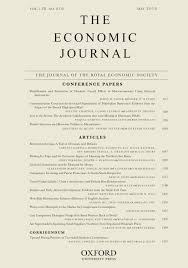
Weber, M. and Schram, A. (2017). The Non-Equivalence of Labour Market Taxes: A Real-Effort Experiment Economic Journal, 127(604):2187--2215.
-
Affiliated authorsArthur Schram, Matthias Weber
-
Publication year2017
-
JournalEconomic Journal
Under full rationality, a labour market tax levied on employers and a corresponding income tax levied on employees are equivalent. With boundedly rational agents, this equivalence is no longer obvious. In a real-effort experiment, we study the effects of these taxes on preferences concerning the size of the public sector, subjective well-being, labor supply, and on-the-job performance. Our findings suggest that employer-side taxes induce preferences for a larger public sector. Subjective well-being is higher under employer-side taxes while labor supply is lower, at least at the extensive margin. We discuss three mechanisms that may underlie these results.